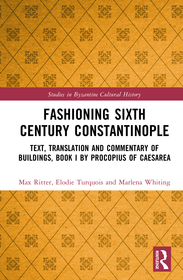
Chivalry, Reading, and Women's Culture in Early Modern Spain
From Amadís de Gaula to Don Quixote
Series: Gendering the Late Medieval and Early Modern World;
- Publisher's listprice GBP 42.99
-
20 538 Ft (19 560 Ft + 5% VAT)
The price is estimated because at the time of ordering we do not know what conversion rates will apply to HUF / product currency when the book arrives. In case HUF is weaker, the price increases slightly, in case HUF is stronger, the price goes lower slightly.
- Discount 10% (cc. 2 054 Ft off)
- Discounted price 18 484 Ft (17 604 Ft + 5% VAT)
Subcribe now and take benefit of a favourable price.
Subscribe
20 538 Ft

Availability
Not yet published.
Why don't you give exact delivery time?
Delivery time is estimated on our previous experiences. We give estimations only, because we order from outside Hungary, and the delivery time mainly depends on how quickly the publisher supplies the book. Faster or slower deliveries both happen, but we do our best to supply as quickly as possible.
Product details:
- Edition number 1
- Publisher Routledge
- Date of Publication 1 December 2025
- ISBN 9781041176909
- Binding Paperback
- No. of pages214 pages
- Size 234x156 mm
- Language English 700
Categories
Short description:
This book analyses many versions of the romance from Spain, Portugal, France, Italy, and England and tells a new story of the life, death, and influences of Amadís.
MoreLong description:
The Iberian chivalric romance has long been thought of as an archaic, masculine genre and its popularity as an aberration in European literary history. Chivalry, Reading, and Women's Culture in Early Modern Spain contests this view, arguing that the surprisingly egalitarian gender politics of Spain's most famous romance of chivalry has guaranteed it a long afterlife. Amadís de Gaula had a notorious appeal for female audiences, and the early modern authors who borrowed from it varied in their reactions to its large cast of literate female characters. Don Quixote and other works that situate women as readers carry the influence of Amadís forward into the modern novel. When early modern authors read chivalric romance, they also read gender, harnessing the female characters of the source text to a variety of political and aesthetic purposes. This book analyses many versions of the romance from Spain, Portugal, France, Italy, and England and tells a new story of the life, death, and influences of Amadís.
Triplette's focused critique of women's literacy, both of the medieval texts' fictional characters and of women themselves as their readers, not only serves as a means of investigating gender equality and as a corrective to our increasingly partial reading practices, but also proposes a vitally effective method of approaching women's culture.- Anne J. Cruz, Early Modern Women, Fall 2020,
Chivalry, Reading, and Women's Culture in Early Modern Spain succeeds not only in examining the female characters in 'Amad's' and 'Don Quijote' but also in cogently and brilliantly bringing Beatriz Bernal and her Cristalián de Espa&&&241;a to the fore in Spanish Golden Age studies.- J. A. Garrido Ardila, Renaissance Quarterly, Volume LXXIII, No. 1
Table of Contents:
Introduction Chapter 1: Women’s Lives and Women’s Literacy in Amadís de Gaula Chapter 2: Women’s Literacy in Beatriz Bernal’s Cristalián de España Chapter 3: The Triumph of Women Readers of Chivalry in Don Quixote Part I Chapter 4: The Defeat of Women Readers of Chivalry in Don Quixote Part II Conclusion, Bibliograph, Notes.
More




